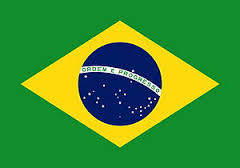Ministry of Education-Brazil
Basic Details
70047-900 Distrito Federal
Brazil

About Ministry of Education-Brazil
The Ministry of Education was created in 1930, shortly after the arrival of Getúlio Vargas to power. With the name of Ministry of Education and Public Health, the institution developed activities related to various ministries such as health, sports, education and the environment. Until then, the issues related to education were treated by the National Education Department, to the Ministry of Justice. In 1932, a group of concerned intellectuals to draft a broad educational policy and integrated program launches the Manifesto of the Pioneers of the New Education, drafted by Fernando de Azevedo and signed by other renowned educators, as Teixeira. The manifesto proposed that the state organize a general plan of education and define the banner of a single school, public, secular, compulsory and free. At that time, the church was state competitor in the field of education. It was in 1934, with the new Federal Constitution, that education is seen as a right for all, and must be dispensed by family and government. From 1934 to 1945, the then Minister of Education and Public Health, Gustavo Capanema Son, promotes a management marked by the reform of secondary and university teaching. At that time, Brazil has implanted the basis of national education. By 1953 it was the Ministry of Education and Health. With the autonomy given to the health sector, the Ministry of Education and Culture arises, with the acronym MEC. The Brazilian educational system to 1960 was centralized and the model was followed by all states and municipalities. With the approval of the first Law of Education Guidelines and Bases (LDB) in 1961, state and local agencies have gained more autonomy, reducing the centralization of MEC. It took 13 years of debate (1948-1961) for the approval of the first LDB. The optional religious instruction in public schools was one of the major points of contention for the passage of the law. The backdrop was the separation between the State and the Church. The education allowance, created in 1962, is also a remarkable fact in the history of the Ministry of Education. To date, this contribution remains a source of funds for the Brazilian basic education.
Actions and Programs:
College education
Technological Education
Basic Education
Continuing Education, Literacy, Diversity and Inclusion
TESTIMONIALS
It has been a pleasure for me and my board to be associated with Maharani Lakshmi Ammanni College for Women. We play a constructive role in building an institution that in turn can be the torchbearer for the future generations – an institution that can hold out hope and serve the needy through commitment and innovation.
